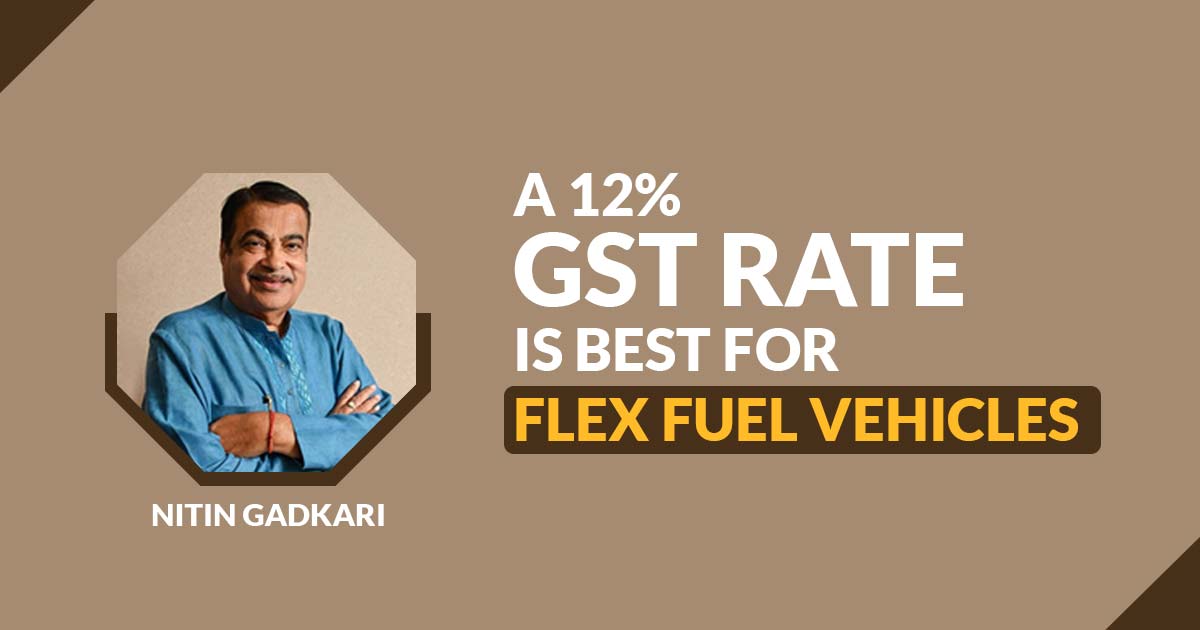
The Minister for Road Transport and Highways, Nitin Gadkari, suggested the Finance Ministry and its counterparts in the states lessen the GST on flex-fuel vehicles to 12 per cent.
Gadkari addressing IFGE’s India Bio-Energy & Tech Expo, said flex-fuel engines are the objective as they will not only lessen the emissions but help shorten the country’s annual fossil fuel import bill of around Rs 22 lakh crore.
I proposed to the FM to lessen the GST on the flex-fuel vehicles. The FM assured me that all the measures will be taken to convince the state finance ministers. I asked the Finance minister of Maharashtra to attend the GST council meeting and recommend the reduction.
Currently, 28 per cent GST is charged on internal combustion engine (ICE) vehicles and hybrids, and 5 per cent on electric vehicles (EVs).
If we can have good technology for biofuel, our exports will rise by 10-20 per cent, pollution is a big concern the world over, he stated.
Read Also: GST Impact on Cars and Spare Parts Industry in India
Minister of Petroleum & Natural Gas, H. S. Puri, at the event, cited that bioenergy is emerging as an important alternative to fossil fuels, proposing both environmental benefits and economic opportunities, specifically in rural areas.
The success of India’s ethanol blending program was one of the achievements.
The dynamic rise in the ethanol blending percentage to 15 percent in 2024, from 1.53% in 2014 has motivated the government to designate an enterprising target of obtaining 20% blending by 2025.
Ethanol blending has a consequence in a saving of ₹99,014 crore in foreign exchange over the past decade, except for declining CO2 emissions by 519 lakh tonnes, and substituting 173 lakh tonnes of crude oil.
Additionally, the program has had a significant economic impact, with Oil Marketing Companies (OMCs) disbursing ₹1,45,930 crore to distillers and ₹87,558 crore to farmers, the Minister stated.
It was illustrated by Puri that the availability of E20 fuel which is now proposed at over 15,600 retail outlets in the country. He appreciates the Pradhan Mantri JI-VAN Yojana for its function in furnishing financial assistance to advanced biofuel projects, which is vital for developing a sustainable ethanol production ecosystem.








